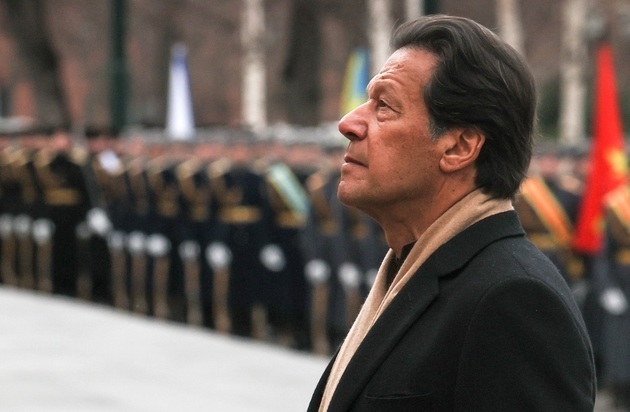Pakistan’s prime minister, Imran Khan, has lost a no-confidence vote in parliament after a dramatic week in which he violated the constitution in an attempt to stop the move going ahead. On Thursday, Pakistan’s supreme court decided that he had broken the law by dissolving parliament in an attempt to prevent a no-confidence vote he was expected to lose from going ahead last week. The prime minister lost a vote of no-confidence initiated by the opposition. They accused him of corruption and failure to improve the economic situation in the country. Khan lost his parliamentary majority when he lost the support of key coalition partners. The parliament’s lower house will meet on Monday to vote for a new prime minister.
According to The Guardian, the opposition had accused Khan of trying to hold the constitution and government “hostage” and of treason after his party. As Khan took meetings with ministers and senior military figures on Saturday, many feared that he would try to get Pakistan’s powerful army to step in and declare martial law. Fears of unrest swirled and security was beefed up around the prime minister’s residence.
As concerns over Khan violating the supreme court ruling mounted, the chief justice took the unprecedented step of asking the supreme court to be ready to open its doors at midnight, should the vote not happen. With just 10 minutes to go before midnight, the legal deadline for the vote, the house speaker Asad Qaiser, an ally of Khan whose role it was to put forward the no-confidence vote in parliament, resigned from his post, saying he could not take part in a foreign conspiracy to oust the PM.
Instead, the speaker role was passed to another MP and, in the final moments of Saturday, after reported pressure from the military on Khan to either resign or face the vote of no confidence, Khan finally agreed to have his premiership put to parliament, though left the parliament chamber as the vote took place.
As expected, without a majority, he lost the no-confidence vote by 174 votes, thereby removing him from power over a year before his term officially ended and making him the first Pakistan prime minister to be ousted on a no-confidence vote. Fawad Hussain, Khan’s minister for information, called it a “sad day for Pakistan”.
Khan’s loss leads the way for a new opposition coalition government, with the leader of the opposition, Shahbaz Sharif, the brother of the jailed former prime minister Nawaz Sharif, as interim prime minister. The opposition has stated its intention to hold elections in the next few months, though they are likely to be October at the earliest.
Sharif, who will be sworn in as the next prime minister in coming days, told the Guardian that the opposition had no intention of taking “revenge” on Khan and “no intention to pursue the politics of hate and divisiveness.” Sharif said they would prioritise electoral reform, with a view to holding a general election “in due course”. “The country is in all sorts of mess, thanks to the epic mismanagement of the Imran Khan government,” he said. “From paralysed bureaucracy to the foreign policy challenges to the broken economy, chaos is reigning supreme.”
Last week’s no-confidence vote was tabled by the opposition amid an economic crisis that has pummelled Khan’s popularity. Khan said it was the result of a “foreign conspiracy” to unseat him. He decided to dissolve parliament and announced fresh elections would happen within three months. He defended the move as an attempt to protect Pakistan from a western- and specifically US-led conspiracy to interfere in its affairs. The opposition described it as a “civilian coup” and a treasonous attempt by Khan to cling to power despite losing his majority. They appealed to the supreme court, who overturned Khan’s decision.
Khan made it clear he had no intention of stepping aside voluntarily. He called for his supporters to take to the streets in mass protest and said he would not accept any “imported” government, a veiled reference to his previous allegations that the political opposition had conspired with western powers to topple him. “What is happening with our democracy is catastrophic,” Khan said in his speech.
Khan was elected in 2018 as the “modern” face of Pakistan, who had the backing of the military and promised economic prosperity and an end to corruption.But his time in office has been blighted by economic crisis, including record inflation . Khan is expected to contest the next elections. In a Twitter post after the supreme court ruling, Khan wrote: “My message to our nation is I have always and will continue to fight for Pak till the last ball.”






